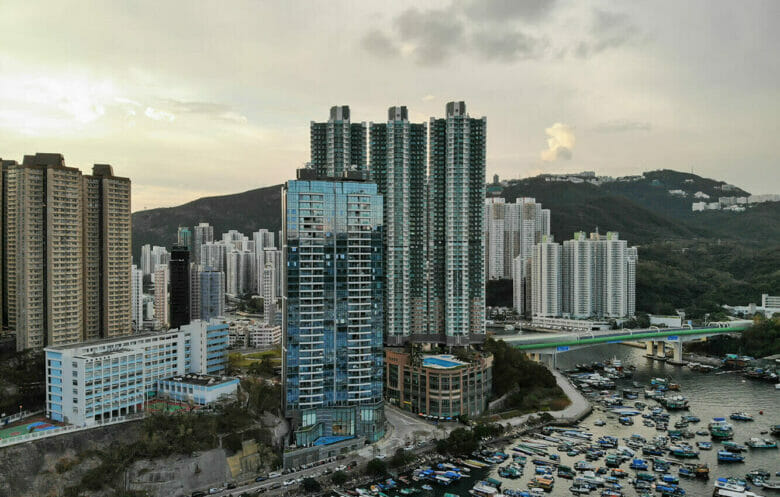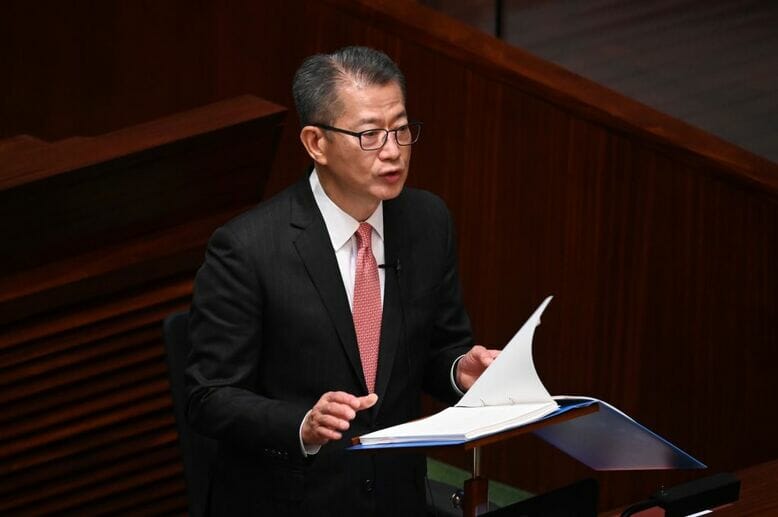
The new LTV ratios mark the first easing of Hong Kong’s residential mortgage rules since 2009 (Getty Images)
Hong Kong’s central bank late Friday eased down-payment requirements for some home purchases, aiming to reboot the weak housing market after a prior relaxation of stress-testing rules failed to foster a sustained turnaround.
For residential properties for self-occupation, the new maximum loan-to-value ratio is 70 percent for properties valued at HK$15 million ($1.9 million) or lower and 60 percent for properties with a value of more than HK$15 million and up to HK$30 million, increasing from the previous 50 percent, the Hong Kong Monetary Authority said in a release.
The maximum LTV ratio for self-occupied residential properties valued at over HK$30 million remains unchanged at 50 percent. For non-residential properties, the maximum LTV ratio of 50 percent rises to 60 percent.
“To avoid a sudden drop in applicable LTV ratios, ratios for properties in certain value ranges will change gradually,” the HKMA said. “For non-self-use residential properties, the maximum LTV ratio will remain unchanged at 50 percent.”
Long-Awaited Tweaks
The adjustments mark the first easing of Hong Kong’s residential mortgage rules since 2009 and the first hike in the commercial loan limit since 2020.

Financial Secretary Paul Chan announced tax cuts for homebuyers in February (Getty Images)
Amid surging interest rates, the HKMA last September lowered the interest rate stress-testing requirement for mortgage lending from 300 basis points to 200 basis points, aiming to ensure that a borrower would have adequate financial ability to cope with a rise in interest rates of 200 basis points.
In February, the government introduced tax cuts for first-time buyers of small homes in a bid to jump-start sales. Finance chief Paul Chan announced the lowering of the ad valorem stamp duty on purchases of up to HK$9 million, but the city otherwise left its longtime cooling measures intact.
The HKMA said Friday that it would continue to monitor developments and introduce measures to safeguard banking stability as conditions in the property market evolve.
Recovery in Peril
Cushman & Wakefield reported last week that Hong Kong homebuyers were more hesitant to enter transactions because of higher interest rates, leading to a 13 percent drop in the number of second-quarter deals compared with the previous three months.
“Although the market believes that interest rates may peak in 2H, the consensus is that the high interest rate environment will persist for quite some time,” said Rosanna Tang, executive director and head of research for Hong Kong at Cushman & Wakefield. “In addition, the recent stock market volatility, geopolitical instability, and slow recovery of the global economy, has contributed to a more cautious buying sentiment and hence dampened the recovery process of residential transactions and prices.”
Citing government data, Cushman noted that overall residential prices turned negative in May, slipping 0.7 percent, after rising for the previous four months. Still, the first five months saw a cumulative increase of 4.9 percent.
“We expect developers to continue to actively launch their new projects in the 2H period, mostly of units at less than HK$10 million, with attractive pricing and packages, while transactions in the secondary market may remain relatively slow,” Tang said.
For the whole of 2023, the consultancy expects residential property prices to rise by 3 to 7 percent, with total residential transactions increasing 10 to 15 percent to around 50,000 units.
Leave a Reply